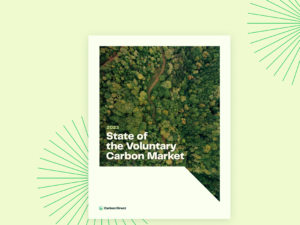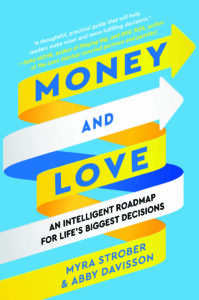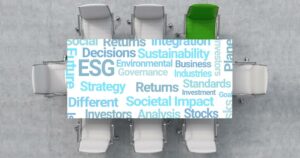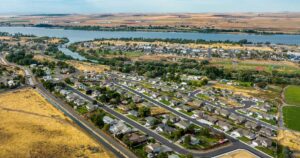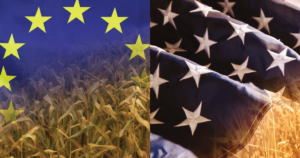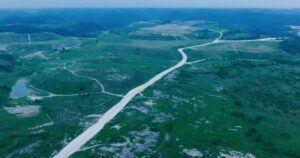
Editor’s note: This is part of a series on closing the sustainability skills gap with the resources we have available. Read the previous articles in this series, which cover training on climate literacy, scaling corporate climate literacy, corporate sustainability strategy, measuring and managing GHG emissions, climate and net-zero strategy, regenerative agriculture and circular economy.
Most sustainability practitioners have fully embraced the fact that our chosen profession has committed us to a lifelong pursuit of learning. My personal training wish list has at least a full year’s worth of courses that I’d like to take (someday!), and I know I’m not alone in that. Unfortunately, training can be expensive, time-consuming or hard to find. The below collection represents the best courses, reports, webinars, articles and 101s I’ve discovered that will take less than an hour of your time, are available on-demand and are free.
If you find yourself with a few precious moments of downtime this holiday season and would like to invest them in learning something new, you can finally figure out how carbon markets work, learn the finer points of green claims regulations, understand TCFD scenario analysis, or even develop your own decarbonization strategy. If all this free learning gets you hooked on training, you can find more than 100 additional sustainability courses in the other articles in this series.
As is often the case with these types of lists, I’m sure I’ve missed some. If your favorite offering isn’t included here, I warmly invite you to join the conversation on LinkedIn to tell me and your fellow readers about it. Thanks in advance for your help with bringing these resources out into the open so that more people can get to work on advancing sustainable business practices.
Reporting, disclosure and claims
It’s been a very big year for sustainability reporting and communications teams — new reporting rules, consolidated reporting standards, new disclosure frameworks and reports of greenhushing in response to anti-ESG rhetoric. It’s a lot to keep track of. These resources can help you start to make sense of it all.
- Green claims: This 30-minute webinar from Reconsidered breaks down the latest developments in the green claims regulatory landscape across the EU, U.K., U.S. and Australia with a focus on what they mean for your company’s sustainability communications strategy.
- Task Force on Climate-Related Financial Disclosures: The TCFD learning hub offers a dozen courses on topics such as understanding the TCFD recommendations, introduction to scenario analysis and biodiversity-related disclosure.
- Taskforce on Nature-related Financial Disclosures: Launched just this week, TNFD in a Box provides an overview of why corporates and financial institutions need to consider nature as a strategic risk management issue and how they can adopt the TNFD recommendations.
- GRI, CDP and ESG: Arizona State University’s Sustainable Earth site offers courses on GRI and ESG reporting fundamentals as well as beginner, intermediate and advanced courses on CDP reporting.
- Reporting standards: The GRI, SASB, IFRS S1 and IFRS S2 standards are all freely available on their respective organizations’ sites.
Carbon credits
Carbon credits were an incredibly important topic at COP28 this year. Currently carbon credits that are sold on voluntary markets are verified by third parties, but there is no globally accepted verification standard, which has led to some of the not-so-great stories you may have read recently and prevents countries from trading their offsets. On the COP28 wish list was the creation of a carbon credit verification system that would bring some standardization to the process and open up carbon markets around the world, but unfortunately, no agreement was reached at this year’s event.
Decarbonization and net-zero strategy
Even if your organization isn’t interested in pursuing a net-zero goal, learning about net-zero strategies can provide you with a comprehensive menu of decarbonization tactics to choose from. Use these tools to help build your unique roadmap.
Supply chain and Scope 3
As the World Resources Institute explains in this very helpful Scope 3 FAQ, Scope 3 can represent over 90 percent of a company’s emissions and is often the biggest source of an organization’s impact, risk and opportunity. These courses and guides can help you determine the most effective way to engage your supply chain.
Climate and environmental justice
If you caught the incredibly popular 10 badass women centering environmental justice at work article in May, then you already know that climate and environmental justice is becoming an increasingly important part of the sustainability work being done at global companies including Microsoft, Salesforce and Nike. These resources can help you visualize what advancing justice might look like for your organization.
- Just transition: The Just Transition Resource Platform was designed to help companies navigate their just transition journey and was developed by BSR, The B Team and the We Mean Business Coalition with support from a dozen leading nongovernmental organizations in sustainability and human rights.
- Best practices: This three-part report on Future500’s research with investors, companies, NGOs and environmental justice organizations provides context, resources and best practices for understanding, operationalizing and hiring for environmental justice.
- Screening tool: The Climate and Economic Justice Screening Tool is an interactive map that shows information about the burdens that communities experience related to climate change, energy, health, housing, legacy pollution, transportation, water and wastewater, and workforce development. Organizations can use the tool to identify disadvantaged communities that could benefit from investments in climate, clean energy and related areas.
Measuring greenhouse gas emissions
Regardless whether you’re directly responsible for conducting your organization’s emissions inventory, everyone on the team should know what emissions inventories are, why they’re important and how they work.
Climate literacy
These courses provide an overview of climate change and related solutions. They’re also a handy source of statistics and facts so you can come to the holiday dinner table prepared for discussions with loved ones who may still have questions.
- Climate solutions: The Climate Solutions 101 course from Project Drawdown does a fantastic job of setting the stage and connecting the dots between what’s happening, why it’s happening, what levers we have for change, and how we can accelerate that change.
- Climate resilience: The One UN Climate Change Learning Partnership, UN CC:Learn, is an entire catalog of free courses on how to understand, adapt and build resilience to climate change.
- Additional training: If you’ve got the basics covered, check out these more advanced training options from The Climate Reality Project, Voiz Academy and others.
Join the conversation
I hope this article has helped you find at least one great new resource to help you level up your sustainability expertise. Be sure to keep an eye out for future articles in this series and remember, if I’ve missed one of your favorites or if you want to tell me about a resource that could be relevant to a future article, please join the conversation on LinkedIn. Until next time!
- SEO Powered Content & PR Distribution. Get Amplified Today.
- PlatoData.Network Vertical Generative Ai. Empower Yourself. Access Here.
- PlatoAiStream. Web3 Intelligence. Knowledge Amplified. Access Here.
- PlatoESG. Carbon, CleanTech, Energy, Environment, Solar, Waste Management. Access Here.
- PlatoHealth. Biotech and Clinical Trials Intelligence. Access Here.
- Source: https://www.greenbiz.com/article/35-easy-free-ways-level-your-sustainability-expertise-over-holidays
- :has
- :is
- :not
- $UP
- 100
- 90
- a
- About
- about IT
- Academy
- accelerate
- accepted
- across
- adapt
- Additional
- adopt
- advance
- advanced
- advancing
- Agreement
- All
- alone
- already
- also
- an
- analysis
- and
- ARE
- areas
- arizona
- around
- article
- articles
- AS
- At
- Australia
- available
- b
- Basics
- BE
- becoming
- been
- being
- below
- benefit
- BEST
- best practices
- between
- Big
- Biggest
- breaks
- bring
- Bringing
- build
- business
- business practices
- but
- by
- CAN
- Can Get
- carbon
- carbon credits
- case
- catalog
- caught
- centering
- chain
- change
- check
- Choose
- chosen
- claims
- clean
- clean energy
- Climate
- Climate change
- closing
- coalition
- collection
- come
- committed
- Communications
- Communities
- Companies
- company
- Company’s
- comprehensive
- conducting
- Connecting
- Consider
- context
- Conversation
- cop28
- Corporate
- corporates
- could
- countries
- course
- courses
- cover
- covered
- creation
- credit
- Credits
- Currently
- decarbonization
- designed
- Determine
- develop
- developed
- Development
- developments
- Dinner
- directly
- disclosure
- Disclosures
- discovered
- discussions
- does
- done
- down
- downtime
- dozen
- earth
- easy
- Economic
- Effective
- embraced
- Emissions
- energy
- engage
- Entire
- environmental
- ESG
- EU
- Even
- everyone
- expensive
- experience
- expertise
- Explains
- eye
- fact
- facts
- fantastic
- Favorite
- Favorites
- fellow
- few
- Figure
- Finally
- financial
- Financial institutions
- Find
- Focus
- For
- Force
- Free
- freely
- from
- full
- fully
- Fundamentals
- future
- gap
- GAS
- get
- GHG
- Global
- Globally
- goal
- got
- great
- Green
- greenhouse gas
- Guides
- handy
- Happening
- Hard
- Have
- Health
- help
- helped
- helpful
- here
- Holiday
- holidays
- hope
- hour
- housing
- How
- How To
- HTTPS
- human
- human rights
- i
- identify
- if
- ifrs
- Impact
- important
- in
- included
- Including
- increasingly
- incredibly
- information
- Institute
- institutions
- interactive
- interested
- into
- Introduction
- inventory
- Invest
- Investments
- Investors
- invite
- issue
- IT
- Job
- join
- journey
- jpg
- just
- Justice
- Keep
- Know
- latest
- latest developments
- launched
- leading
- LEARN
- learning
- least
- Led
- Legacy
- less
- Level
- lifelong
- like
- List
- Lists
- Look
- look like
- Lot
- loved
- make
- management
- managing
- map
- Markets
- May..
- me
- mean
- measuring
- Menu
- Microsoft
- might
- missed
- Moments
- more
- most
- my
- Nature
- Navigate
- Need
- net-zero
- New
- next
- NGOs
- NIKE
- no
- nongovernmental
- note
- of
- offering
- Offers
- offsets
- often
- on
- On-Demand
- ONE
- ones
- open
- Opportunity
- Options
- or
- organization
- organizations
- Other
- our
- out
- over
- overview
- own
- part
- parties
- Partnership
- People
- percent
- personal
- plato
- Plato Data Intelligence
- PlatoData
- please
- points
- Pollution
- Popular
- practices
- Precious
- prepared
- prevents
- previous
- previous articles
- process
- profession
- project
- provide
- provides
- pursuing
- pursuit
- Questions
- reached
- Read
- readers
- Reality
- recently
- recommendations
- regenerative
- regulations
- regulatory
- related
- relevant
- remember
- report
- Reporting
- Reports
- represent
- represents
- research
- resilience
- resource
- Resources
- respective
- response
- responsible
- Reuters
- rights
- Risk
- risk management
- roadmap
- s
- salesforce
- scaling
- scenario
- scope
- screening
- Season
- sense
- Series
- setting
- should
- Shows
- Sites
- skills
- skills gap
- So
- sold
- Solutions
- some
- something
- Source
- Stage
- standard
- standardization
- standards
- start
- State
- statistics
- Still
- Strategic
- strategies
- Strategy
- such
- supply
- supply chain
- support
- sure
- Sustainability
- sustainable
- system
- table
- tactics
- Take
- team
- teams
- tell
- than
- thanks
- that
- The
- The Basics
- the world
- their
- Them
- then
- There.
- These
- they
- Third
- third parties
- this
- this week
- this year
- time
- time-consuming
- to
- tool
- tools
- topic
- Topics
- track
- Trading
- Training
- transition
- transportation
- types
- U.K.
- u.s.
- UN
- understand
- understanding
- unfortunately
- unique
- until
- us
- use
- Ve
- Verification
- verified
- very
- visualize
- voluntary
- want
- was
- Water
- Way..
- ways
- we
- webinar
- Webinars
- week
- WELL
- were
- What
- whether
- which
- WHO
- why
- will
- with
- Women
- Work
- Workforce
- Workforce Development
- world
- worth
- would
- year
- you
- Your
- yourself
- zephyrnet

